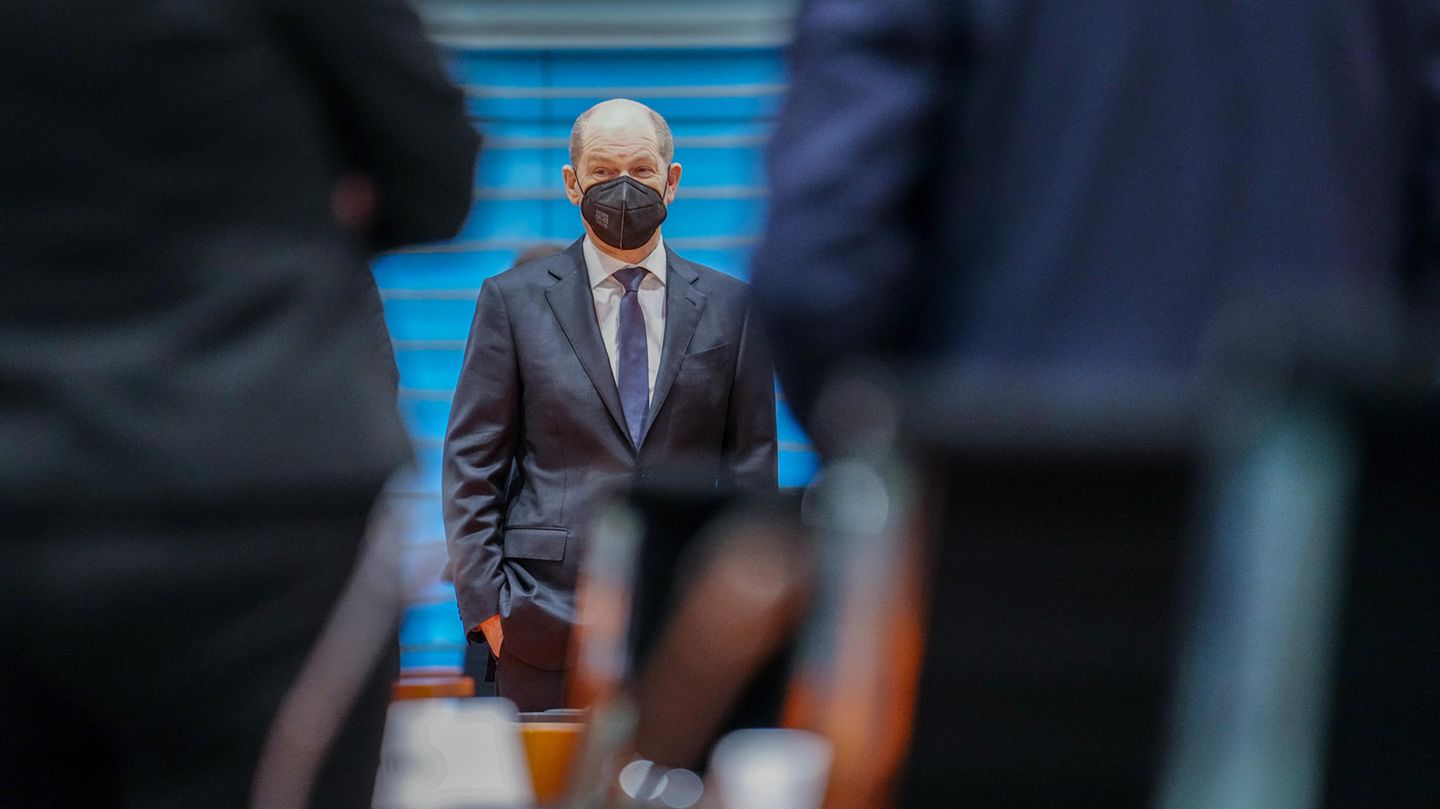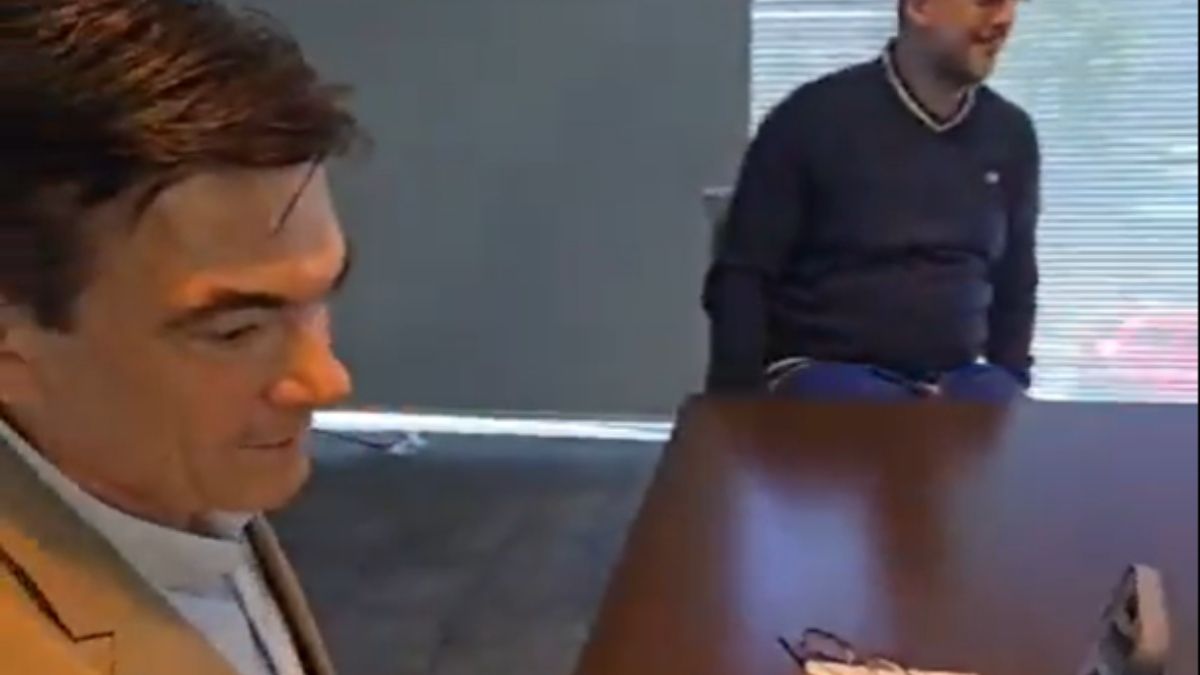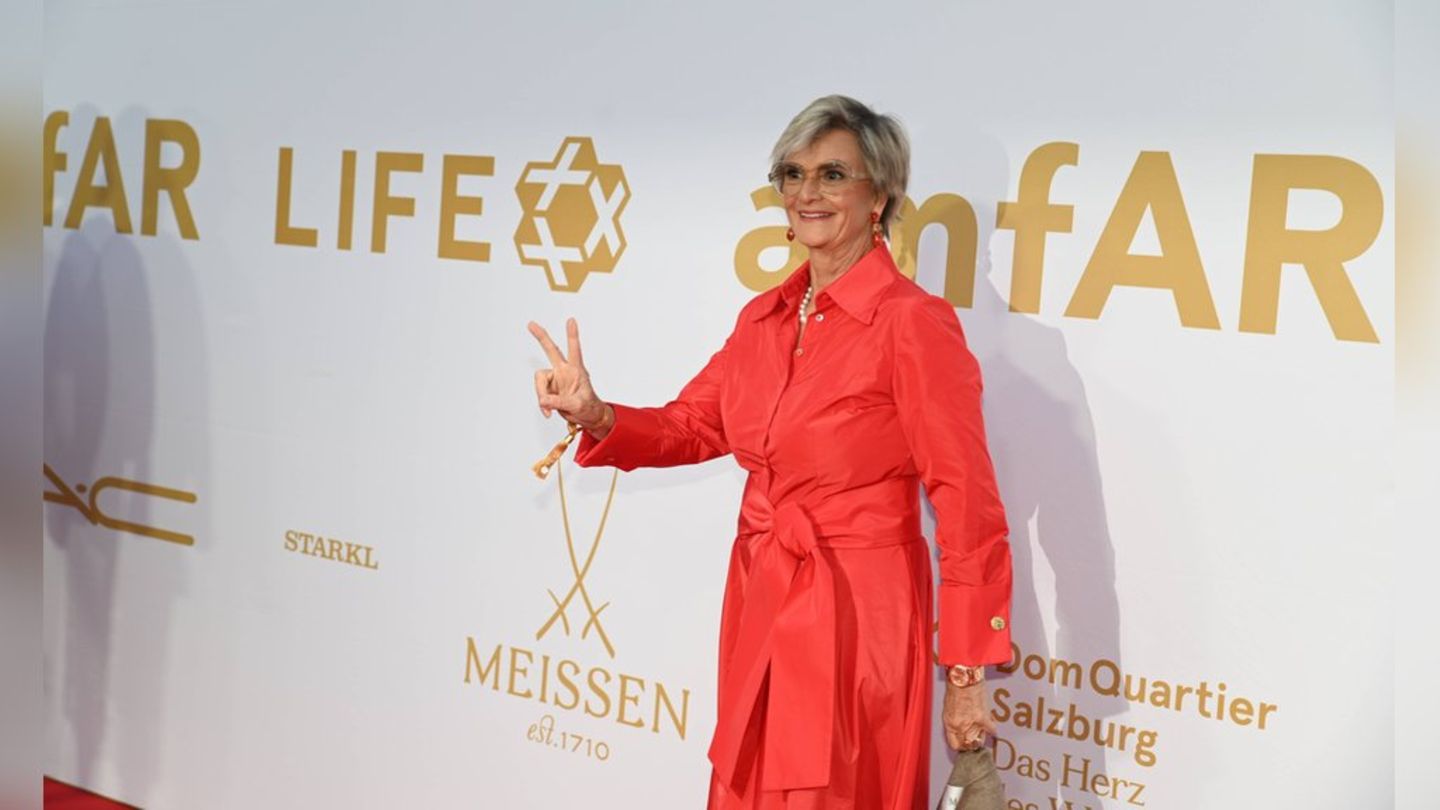The traffic light coalition is slipping in the voters’ favour, and the Federal Chancellor is also losing popularity. Should Olaf Scholz be worried?
The expectations were high, the promise of a new government and head of government exhilarated the Federal Republic. In the Chancellery one could say good grades for the cabinet, overwhelming satisfaction with the coalition work.
And Angela Merkel, who had been in office for a good ten weeks, could also be satisfied.
A few months later, in September 2006, the tide turned. The initial euphoria gave way to disillusionment: the chancellor lost personal approval, and the coalition increasingly caused frustration instead of joy. Suddenly .
Her successor in office is currently experiencing how quickly the mood can change, how quickly the good momentum can turn into bad vibes. Olaf Scholz, who has ruled for 59 days, is experiencing a one-time crash in the current one.
Only 43 percent of Germans are “satisfied” or “very satisfied” with his political work – a drop of 17 percent compared to the beginning of January, which, according to infratest dimap, marks a negative record for a Federal Republic of Germany for a chancellor. According to the opinion research institute, the work of the traffic light coalition and cabinet members is also losing approval. And there is a new number one in the Sunday question: the Union, which is clearly ahead of the SPD.
That fits. But will Scholz and his cabinet get stuck in their clothes?
Surveys are snapshots that should always be viewed in context. In September 2006, Merkel explained the dip in the polls with the budget consolidation, which hurts the citizens, and there was a dispute in the grand coalition of Union and SPD about the image of the federal government. Scholz has to navigate through the corona pandemic, an unprecedented crisis, and another is taking shape on the Ukrainian border with the deployment of Russian troops.
That obviously puts pressure on the mood, but that too can change slowly or quickly – nobody should know that better than Scholz.
For a long time it was considered to have been written off, and the SPD’s polls seemed to be cemented in the basement. Your chancellor candidate acted so quietly during the election campaign that the competition hardly took any notice of him. And he fell for it. He didn’t attract attention, not even negatively. And if you don’t attract negative attention, you inspire trust. That was his strategy, the Chancellery his reward. Once there, however, it becomes clear – and some construction sites have opened up.
1. The Corona policy
“After a few weeks in office, it’s becoming clear that the momentum with which the federal government wanted to start anew has come to naught,” says political scientist Thomas Jäger from the University of Cologne star with a view to the current ARD “Germany trend”. “That applies in particular to the chancellor, to whom the coalition’s mistakes in craftsmanship and formula compromises are attributed.”
In several areas it becomes clear that Scholz is floating in space without a strategy and can’t get his feet on the ground. The citizens now have firm, albeit different, opinions on corona policy: some go too far, which is not enough for others. “The Chancellor’s stance remains vague and that doesn’t go down well,” concludes Jäger.
The area of tension is reflected in the ARD “Germany trend”: Although a majority of Germans are in favor of compulsory vaccination from the age of 18 (53 percent), around a third reject this completely. Chancellor Scholz is one of the supporters, but leaves the details and elaboration of a corresponding regulation to the Bundestag. His plan to have this up and running by “early March” . Whether, when and in what form a vaccination could come: unclear.
Meanwhile, the federal government’s vaccination campaign is stagnating. Scholz’s. Against this background, too, experts are against relaxing the rules at this point in time, while neighboring European countries are less strict. According to the ARD “Deutschlandtrend”, a majority of 44 percent consider the current measures to be appropriate, but for 31 percent they go too far – six percentage points more than in the previous month.
2. The conflict with Russia
In addition to corona policy, the Germans are also concerned with the potential risk of war in Europe, so a majority considers Germany’s foreign policy threat to be “very threatening” or “threatening”. How to deal with Russia? This not only divides the Germans, but also the SPD around Chancellor Scholz.
“The majority of his party, the coalition and the Germans want a soft policy towards Russia. But Scholz cannot represent that internationally,” says political scientist Jäger. “And since Scholz doesn’t want to end up like Helmut Schmidt, who showed a security policy stance, and can’t appear like Gerhard Schröder, he pays for maneuvering with a loss of popularity.”
What the SPD does with Russia depends on . In order to find a common position, leading social democrats met on Monday at the invitation of SPD chairman Lars Klingbeil. Nevertheless, Scholz sees the SPD as “very united” at this point, as he said on . The party stands “behind the policy pursued by the chancellor.” And that was “very clearly, by the way, for a very long time and always very precisely described.” Meaning: The “high price” that Russia would have to pay in the event of an invasion of Ukraine – and which Scholz again did not specify.
It’s growing, allies are already having doubts about Berlin’s reliability. Moscow and Kiev are currently receiving mediation attempts from heads of state from all directions – just apparently not from Germany. “Of course I also spoke to the Russian President,” assured Scholz in the ZDF interview and left the time and content of the conversation open. One prepares “of course carefully everything that is now necessary.”
Meanwhile, other countries, such as France, Great Britain and Turkey, are playing the role of mediator. With a series of trips abroad and several meetings in Berlin, Scholz wants to make his efforts to find a diplomatic solution to the Ukraine crisis clear over the next two weeks. Deputy government spokesman Wolfgang Büchner announced on Friday that the chancellor will visit Kiev on February 14 before meeting Russian President Vladimir Putin in Moscow a day later. Scholz is leaving for Washington this Sunday and will then be received by President Joe Biden in the White House on Monday.
3. Energy prices
Scholz’s biggest problem in the fight against the dip in the survey could be different. “If energy prices and inflation remain as high as they are at the moment, Scholz’ poll numbers have not yet reached their low point,” believes political scientist Jäger. “Then the coalition as a whole could get into very difficult waters.” The Germans would expect the government to solve problems “What may succeed with problems in geographical and temporal distance fails as soon as it comes to one’s own purse.”
Because the prices for electricity, gas and oil are rising and rising – and driving many people to despair. How expensive is warming? A question not only of star negotiated in its current cover story, but also employs many citizens. Politicians are looking for ways out, for example through the planned abolition of the EEG surcharge. But what is actually supposed to be billions in relief for electricity customers could .
What does all this mean for Scholz?
“Whether the significant loss of approval for the Federal Chancellor will become a trend depends on developments over the next few weeks,” says political scientist Jäger. “International crises, economic problems and social protests could become the hallmark of the next year – unless the events are kind to Scholz.” The chancellor does not have much in his hands, he also needs luck with some developments.
No politician can rely on luck – just as little as on polls. When Merkel felt headwind in the polls in September 2006, she also explained the poor results with the “incredibly difficult things” that the federal government had tackled. In addition, after the federal elections, she “had given up a bit of my faith in surveys anyway.”
Their term of office should last 5860 days, more than 16 years.
Source: Stern
David William is a talented author who has made a name for himself in the world of writing. He is a professional author who writes on a wide range of topics, from general interest to opinion news. David is currently working as a writer at 24 hours worlds where he brings his unique perspective and in-depth research to his articles, making them both informative and engaging.




